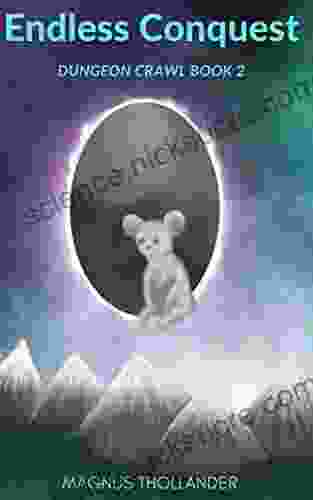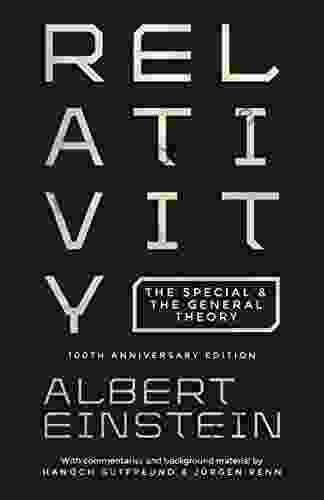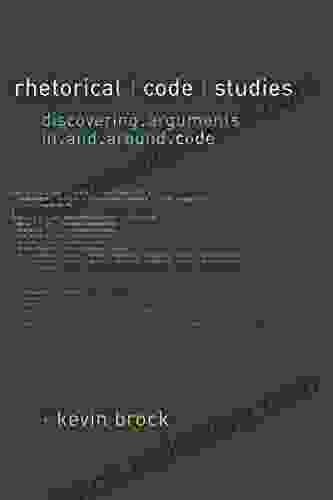Discovering Arguments In And Around Code: Sweetland Digital Rhetoric

In the realm of digital rhetoric, the concept of argumentation extends beyond traditional forms of written and spoken discourse to encompass the ways in which code can be used to make arguments. This article explores the relationship between code and argumentation, examining how code can be used to construct persuasive claims and how arguments can be embedded within code. We will draw on the work of Jonathan Sterne, Jessica Rettberg, and other scholars in the field of digital rhetoric to illuminate the rhetorical dimensions of code.
Code as Argument
Code is not simply a neutral tool for representing information. It is also a medium for expressing ideas and making claims. As Jonathan Sterne argues in his book The Audible Past, code can be seen as a form of "sonic writing" that can be used to create persuasive effects. For example, the use of certain sound effects or musical cues in a video game can be used to create a particular mood or atmosphere, which can in turn influence the player's experience of the game.
4.7 out of 5
| Language | : | English |
| File size | : | 2302 KB |
| Text-to-Speech | : | Enabled |
| Screen Reader | : | Supported |
| Enhanced typesetting | : | Enabled |
| Print length | : | 232 pages |
Code can also be used to make more explicit arguments. For example, the design of a website or app can be used to convey a particular message or point of view. The placement of certain elements on a page, the use of particular colors or fonts, and the way that users are able to interact with the site or app can all be used to make persuasive claims.
Arguments in Code
In addition to using code to make arguments, it is also possible to embed arguments within code itself. This can be done through the use of comments, documentation, or even the code itself. For example, a programmer may include comments in their code to explain the purpose of a particular function or to provide instructions on how to use it. These comments can be seen as a form of argumentation, as they are used to persuade the reader to adopt a particular interpretation of the code.
Documentation is another way to embed arguments within code. Documentation provides information about the purpose, structure, and use of a particular piece of code. This information can be used to persuade the reader to adopt a particular understanding of the code. For example, the documentation for a library or framework may explain the benefits of using that particular library or framework, or it may provide examples of how to use it to achieve certain goals.
Finally, the code itself can also be seen as a form of argumentation. The way that code is structured, the algorithms that it implements, and the data that it processes can all be seen as making claims about the world. For example, a sorting algorithm can be seen as making a claim about the best way to organize a list of data. A machine learning algorithm can be seen as making a claim about the relationship between certain features of data and a particular outcome.
This article has provided a brief overview of the relationship between code and argumentation. We have seen that code can be used to make arguments, that arguments can be embedded within code, and that the code itself can be seen as a form of argumentation. This understanding of the rhetorical dimensions of code is essential for anyone who wants to understand the role of code in digital culture.
As code becomes increasingly pervasive in our lives, it is more important than ever to be able to critically analyze the arguments that are embedded within it. By understanding the rhetorical dimensions of code, we can become more informed and engaged participants in the digital world.
References
- Sterne, Jonathan. The Audible Past: Cultural Origins of Sound Reproduction. Duke University Press, 2003.
- Rettberg, Jessica. Blogging. Polity, 2008.
- Swearingen, Kira. "Toward a Rhetorical Analysis of Digital Objects." Rhetoric Society Quarterly, vol. 41, no. 2, 2011, pp. 143-166.
- Manovich, Lev. "Software Takes Command." Software Studies: A Lexicon, edited by Matthew Fuller, p. 363. MIT Press, 2008.
Image Alt Text: A photo of a computer code being displayed on a monitor.
Long Tail Title: Discovering Arguments In And Around Code: An to Digital Rhetoric
4.7 out of 5
| Language | : | English |
| File size | : | 2302 KB |
| Text-to-Speech | : | Enabled |
| Screen Reader | : | Supported |
| Enhanced typesetting | : | Enabled |
| Print length | : | 232 pages |
Do you want to contribute by writing guest posts on this blog?
Please contact us and send us a resume of previous articles that you have written.
 Fiction
Fiction Non Fiction
Non Fiction Romance
Romance Mystery
Mystery Thriller
Thriller SciFi
SciFi Fantasy
Fantasy Horror
Horror Biography
Biography Selfhelp
Selfhelp Business
Business History
History Classics
Classics Poetry
Poetry Childrens
Childrens Young Adult
Young Adult Educational
Educational Cooking
Cooking Travel
Travel Lifestyle
Lifestyle Spirituality
Spirituality Health
Health Fitness
Fitness Technology
Technology Science
Science Arts
Arts Crafts
Crafts DIY
DIY Gardening
Gardening Petcare
Petcare Tod E Bolsinger
Tod E Bolsinger Ron L Deal
Ron L Deal Josh Kilmer Purcell
Josh Kilmer Purcell Kiku Hughes
Kiku Hughes Al Barkow
Al Barkow Isabella Morris
Isabella Morris Wayne Stewart
Wayne Stewart Robert E Stake
Robert E Stake Steven Trimble
Steven Trimble Charlotte Markey
Charlotte Markey Stephen M Camarata
Stephen M Camarata Dave Heller
Dave Heller Letisha Galloway
Letisha Galloway Howard Greene
Howard Greene Jay Revell
Jay Revell Alastair Humphreys
Alastair Humphreys Akwaeke Emezi
Akwaeke Emezi Jerry Robeson
Jerry Robeson Kevin Hunter
Kevin Hunter Mariam N Ottimofiore
Mariam N Ottimofiore Ken Denmead
Ken Denmead Teresa Mccallum
Teresa Mccallum Arnold Haultain
Arnold Haultain Alan S Kaufman
Alan S Kaufman James Gleick
James Gleick Kareem Abdul Jabbar
Kareem Abdul Jabbar Andrew Jamieson
Andrew Jamieson Mark Harris
Mark Harris Jenni Hicks
Jenni Hicks Anders Halverson
Anders Halverson Janet Houser
Janet Houser Al Sweigart
Al Sweigart Douglas Noll
Douglas Noll Alan Shipnuck
Alan Shipnuck Al Desetta M A
Al Desetta M A Harriet Brown
Harriet Brown Aiva Books
Aiva Books Taquetta Baker
Taquetta Baker Alan Watts
Alan Watts Peter Irvine
Peter Irvine Steven H Strogatz
Steven H Strogatz Jeanne Faulkner
Jeanne Faulkner Eden O Neill
Eden O Neill Dylan Alcott
Dylan Alcott R A Salvatore
R A Salvatore Jonathan White
Jonathan White Kelly Jensen
Kelly Jensen Alan R Hall
Alan R Hall Jay Annelli
Jay Annelli Christopher Willard
Christopher Willard Ainsley Arment
Ainsley Arment Truman Everts
Truman Everts Skeleton Steve
Skeleton Steve Damon Lee
Damon Lee Natazha Raine O Connor
Natazha Raine O Connor Graham Bower
Graham Bower 12th Edition Kindle Edition
12th Edition Kindle Edition Amelia Simmons
Amelia Simmons Joe Berardi
Joe Berardi Alan Garner
Alan Garner Alan Lawrence Sitomer
Alan Lawrence Sitomer Gary R Varner
Gary R Varner Aileen Evans
Aileen Evans Jon Tyson
Jon Tyson Pallas Snider
Pallas Snider Aidan Chambers
Aidan Chambers Mike Rothschild
Mike Rothschild Cindy Hudson
Cindy Hudson Vanessa Ogle
Vanessa Ogle Alan Hearnshaw
Alan Hearnshaw Elaine Howard Ecklund
Elaine Howard Ecklund Mark Goulston
Mark Goulston Rand Cardwell
Rand Cardwell Lj Andrews
Lj Andrews Miles Mckenna
Miles Mckenna Bettina Gordon Wayne
Bettina Gordon Wayne Erin Lovelace
Erin Lovelace Dennis Jarecke
Dennis Jarecke Julie Bradley
Julie Bradley David D Burns
David D Burns Tom Shachtman
Tom Shachtman Erica Westly
Erica Westly Joyce Burkhalter Flueckiger
Joyce Burkhalter Flueckiger Alaina Talboy
Alaina Talboy Aidan Comerford
Aidan Comerford David Jason
David Jason Rose Lynn Fisher
Rose Lynn Fisher Aphra Behn
Aphra Behn Roxy And Ben Dawson
Roxy And Ben Dawson Bill Walker
Bill Walker Caitlin Zaloom
Caitlin Zaloom Farlex International
Farlex International Jay Speight
Jay Speight Jeremy Miles
Jeremy Miles Paramahansa Yogananda
Paramahansa Yogananda Madeline Milne
Madeline Milne Francesca Lia Block
Francesca Lia Block Peter Ballingall
Peter Ballingall Dan Dipiro
Dan Dipiro Habeeb Quadri
Habeeb Quadri Denise Alvarado
Denise Alvarado Jay H Lefkowitch
Jay H Lefkowitch Elizabeth Thompson
Elizabeth Thompson Chris Bowers
Chris Bowers Scott Surovich
Scott Surovich Rebekah Sack
Rebekah Sack Cynthia Clumeck Muchnick
Cynthia Clumeck Muchnick Alan Lightman
Alan Lightman Patrick O Sullivan
Patrick O Sullivan Melissa Bashardoust
Melissa Bashardoust Zondervan
Zondervan Alan Graham
Alan Graham Martin J Pring
Martin J Pring Nicholas Romanov
Nicholas Romanov Kate Bettison
Kate Bettison Amanda Ford
Amanda Ford Bob Plott
Bob Plott Charles J Thayer
Charles J Thayer Celeste Headlee
Celeste Headlee Katharine Graves
Katharine Graves Kerry Diamond
Kerry Diamond Jacqueline Fitzpatrick
Jacqueline Fitzpatrick Nick Hughes
Nick Hughes Donna Morang
Donna Morang Jacqueline Tourville
Jacqueline Tourville Dave Whitson
Dave Whitson Satya Sundar Sethy
Satya Sundar Sethy Andre Agassi
Andre Agassi Helen Palmer
Helen Palmer Florence Williams
Florence Williams Nancy Hughes
Nancy Hughes Alan Vermilye
Alan Vermilye Janice Selekman
Janice Selekman Rob Casey
Rob Casey Lisa Marasco
Lisa Marasco Alana Chernila
Alana Chernila James Willard Schultz
James Willard Schultz Nilakantasrinivasan J Neil
Nilakantasrinivasan J Neil Mary Basick
Mary Basick Tim Gallagher
Tim Gallagher Lexie Scott
Lexie Scott Doug Gelbert
Doug Gelbert Jane Poynter
Jane Poynter Mike Martin
Mike Martin Thubten Chodron
Thubten Chodron Lee Carroll
Lee Carroll Carla Schroder
Carla Schroder Gregory J Davenport
Gregory J Davenport David F Kelly
David F Kelly Lecile Harris
Lecile Harris Martin Rooney
Martin Rooney Edward A Tiryakian
Edward A Tiryakian Michael Casey
Michael Casey Albert Einstein
Albert Einstein Meredith Marsh
Meredith Marsh Howard Maxwell
Howard Maxwell Kevin Williams
Kevin Williams Mark Booth
Mark Booth Alan Porter
Alan Porter Emeran Mayer
Emeran Mayer Olivia Gentile
Olivia Gentile Stephen Wolfram
Stephen Wolfram Jessica Battilana
Jessica Battilana Jack Nicklaus
Jack Nicklaus Samuel N Rosenberg
Samuel N Rosenberg Michael Freedland
Michael Freedland Saul Rip
Saul Rip J Zoltan
J Zoltan Stephanie Izard
Stephanie Izard Emily Harris Adams
Emily Harris Adams United States Government Us Marine Corps
United States Government Us Marine Corps Frances E Jensen
Frances E Jensen Michael Gray
Michael Gray Eddy Starr Ancinas
Eddy Starr Ancinas Karen Levin Coburn
Karen Levin Coburn Dusty Rhodes
Dusty Rhodes Barbara Oehlberg
Barbara Oehlberg Melinda Rushe
Melinda Rushe Jamie Baulch
Jamie Baulch Molly Absolon
Molly Absolon Gayle Peterson
Gayle Peterson Esther Parry
Esther Parry Steven Horak
Steven Horak Al Roker
Al Roker Robert Macfarlane
Robert Macfarlane Clint Emerson
Clint Emerson Jim Steenburgh
Jim Steenburgh Louis Schubert
Louis Schubert Lisa Newton
Lisa Newton George Monbiot
George Monbiot George M Fredrickson
George M Fredrickson E Cheng
E Cheng Noel St Clair
Noel St Clair Arnold Yates
Arnold Yates Sara Hanover
Sara Hanover Amye Archer
Amye Archer Aja Raden
Aja Raden Zita West
Zita West Charles B White
Charles B White Dawn Sakamoto Paiva
Dawn Sakamoto Paiva Ai Publishing
Ai Publishing Grace Lebow
Grace Lebow Po Bronson
Po Bronson Sandy Lindsey
Sandy Lindsey Layla Moon
Layla Moon Gail Tully
Gail Tully Aileen Nielsen
Aileen Nielsen Sam J Fires
Sam J Fires Ken Schultz
Ken Schultz John Riley
John Riley George E Andrews
George E Andrews Leigh Sales
Leigh Sales Dr Guy Leschziner
Dr Guy Leschziner William Foote Whyte
William Foote Whyte Vishwesh Bhatt
Vishwesh Bhatt Constance Classen
Constance Classen Robin Mckinley
Robin Mckinley Nassim Nicholas Taleb
Nassim Nicholas Taleb Frank E Harrell Jr
Frank E Harrell Jr Jerry Robertson
Jerry Robertson Hervey Garrett Smith
Hervey Garrett Smith Alan Rouse
Alan Rouse Linda G Morris
Linda G Morris Al Ristori
Al Ristori G E R Lloyd
G E R Lloyd Aidan Dodson
Aidan Dodson Trevor Lund
Trevor Lund Donald Woods Winnicott
Donald Woods Winnicott Juliet Marillier
Juliet Marillier Kristine Barnett
Kristine Barnett J R Haseloff
J R Haseloff Anna Hickey Moody
Anna Hickey Moody I Johnson
I Johnson Akil Palanisamy
Akil Palanisamy Kiersten White
Kiersten White Vera Nazarian
Vera Nazarian We Fairbairn
We Fairbairn Nick Lyons
Nick Lyons Megan Gray Md
Megan Gray Md Matthew Sturm
Matthew Sturm David Roberts
David Roberts Robert L Kelly
Robert L Kelly The Rogue Hypnotist
The Rogue Hypnotist Jakob Tanner
Jakob Tanner William A Kaplin
William A Kaplin Larry Wasserman
Larry Wasserman Markus Rex
Markus Rex S Connolly
S Connolly Steve Michalik
Steve Michalik Shing Tung Yau
Shing Tung Yau Robert M Emerson
Robert M Emerson Ndeye Labadens
Ndeye Labadens Yang Jwing Ming
Yang Jwing Ming David Vine
David Vine John J Miller
John J Miller Jeff Maynard
Jeff Maynard Pantea Kalhor
Pantea Kalhor George Knudson
George Knudson Anahad O Connor
Anahad O Connor Matt Mosher
Matt Mosher Bill Friedrich
Bill Friedrich Conor Daly
Conor Daly Thomas Metzinger
Thomas Metzinger Bob Mayer
Bob Mayer Alan Booth
Alan Booth Bryon Powell
Bryon Powell Helen Hollick
Helen Hollick William Harding
William Harding Deitra Leonard Lowdermilk
Deitra Leonard Lowdermilk Christopher Gavigan
Christopher Gavigan Roy Dittmann
Roy Dittmann Theodore P Jorgensen
Theodore P Jorgensen Bianca Smith
Bianca Smith Hannah Ewens
Hannah Ewens Andrew Rowe
Andrew Rowe Al Owens
Al Owens Arthur Fleischmann
Arthur Fleischmann Carl Gustav Jung
Carl Gustav Jung Len Sperry
Len Sperry Carol Tuttle
Carol Tuttle Joe Clement
Joe Clement Benjamin Johnston
Benjamin Johnston Publishdrive Edition Kindle Edition
Publishdrive Edition Kindle Edition Angelina Wilson
Angelina Wilson Linda Welters
Linda Welters Tenth Edition Revised Kindle Edition
Tenth Edition Revised Kindle Edition Penney Peirce
Penney Peirce Aimee Aristotelous
Aimee Aristotelous Percy Boomer
Percy Boomer Catherine Belknap
Catherine Belknap Kerstin Gier
Kerstin Gier Gavin Francis
Gavin Francis Gordon R Dickson
Gordon R Dickson David A Sousa
David A Sousa Betsy Tobin
Betsy Tobin John H Moore
John H Moore Marc M Triola
Marc M Triola Jessica Cornwell
Jessica Cornwell Toby Wilkinson
Toby Wilkinson Thomas Kurz
Thomas Kurz Gary Player
Gary Player Lo Bosworth
Lo Bosworth Anthonissa Moger
Anthonissa Moger Snap Summaries
Snap Summaries Sophia Joy
Sophia Joy Sara Wickham
Sara Wickham David King
David King Douglas G Altman
Douglas G Altman Al Pasha
Al Pasha John T Hansen
John T Hansen Craig Childs
Craig Childs James A Michener
James A Michener Mark Drolsbaugh
Mark Drolsbaugh Amelia Mayer
Amelia Mayer Mendocino Press
Mendocino Press Antipodean Writer
Antipodean Writer Morgan Lyle
Morgan Lyle Aileen Erin
Aileen Erin Michael Morpurgo
Michael Morpurgo John Irving
John Irving Original Edition Kindle Edition
Original Edition Kindle Edition Cat Warren
Cat Warren Jordon Greene
Jordon Greene Jan Smith
Jan Smith Vasilis Konstantinos Giontzis
Vasilis Konstantinos Giontzis Brenda Nathan
Brenda Nathan Anne Enright
Anne Enright Al Yellon
Al Yellon Robert A Sadowski
Robert A Sadowski Christopher Hellman
Christopher Hellman Mykel Hawke
Mykel Hawke E A Koetting
E A Koetting Pavel Tsatsouline
Pavel Tsatsouline Timothy C Smith
Timothy C Smith John Bird
John Bird Bill Parisi
Bill Parisi Nina Lacour
Nina Lacour Tonya Johnston
Tonya Johnston Courtney Macavinta
Courtney Macavinta Kardas Publishing
Kardas Publishing Barbara Scott
Barbara Scott Martin Luther King Jr
Martin Luther King Jr Jackson Katz
Jackson Katz Vernon Coleman
Vernon Coleman W E Fairbairn
W E Fairbairn Alice Oseman
Alice Oseman Rene D Zweig
Rene D Zweig Hope Smith
Hope Smith Orson Scott Card
Orson Scott Card Alex Light
Alex Light Alfred S Posamentier
Alfred S Posamentier Ged Jenkins Omar
Ged Jenkins Omar Daphne Rose Kingma
Daphne Rose Kingma Terry L Duran
Terry L Duran Kate Brian
Kate Brian Rebecca Jones
Rebecca Jones Shaun Tomson
Shaun Tomson Brian Mills
Brian Mills Jon Emmett
Jon Emmett Terry Breverton
Terry Breverton Gary B Ferngren
Gary B Ferngren Sheila Barton
Sheila Barton Kidada Jones
Kidada Jones Alice Scordato
Alice Scordato Bobby Flay
Bobby Flay Clyde Fitch
Clyde Fitch Bruce Lee
Bruce Lee Mark Occhilupo
Mark Occhilupo M K Hume
M K Hume Michael W King
Michael W King Marsha Wenig
Marsha Wenig Alan S Gurman
Alan S Gurman Ann Hagedorn
Ann Hagedorn Samuel Carbaugh
Samuel Carbaugh Lauren Blackwood
Lauren Blackwood Marcus Chown
Marcus Chown Andy Zipser
Andy Zipser Collins Easy Learning
Collins Easy Learning Edupan7 Publishing
Edupan7 Publishing Dean Burnett
Dean Burnett Beata Bliss Lewis Md
Beata Bliss Lewis Md Mike Warren
Mike Warren Sarah Hendrickx
Sarah Hendrickx David Crabtree
David Crabtree Matthew Mcbee
Matthew Mcbee Richard Pears
Richard Pears Andy Adams
Andy Adams Gina Guddat
Gina Guddat Al Macy
Al Macy Franz Metcalf
Franz Metcalf Bruce J Macfadden
Bruce J Macfadden Harold Klemp
Harold Klemp Deborah Harkness
Deborah Harkness Sir Edmund Hillary
Sir Edmund Hillary Rick Bass
Rick Bass Will Storr
Will Storr Dmitry Zinoviev
Dmitry Zinoviev John Muir
John Muir Andrea Travillian
Andrea Travillian Kai Nacke
Kai Nacke Michael Shermer
Michael Shermer Dorothy H Crawford
Dorothy H Crawford Jonathan Gottschall
Jonathan Gottschall Suze Guillaume
Suze Guillaume Daniel C Okpara
Daniel C Okpara Douglas T Hall
Douglas T Hall Al Strachan
Al Strachan Alan Murchison
Alan Murchison Jill Homer
Jill Homer Andrew Blum
Andrew Blum Hiro Ainana
Hiro Ainana Susan B Lovejoy
Susan B Lovejoy Mackenzi Lee
Mackenzi Lee Anne Dachel
Anne Dachel Howard Hill
Howard Hill Michael D Rich
Michael D Rich Ilan Dvir
Ilan Dvir George Plimpton
George Plimpton Peg Tyre
Peg Tyre Micky Ward
Micky Ward Bryan Mann
Bryan Mann Don Casey
Don Casey Magnus Thollander
Magnus Thollander Christos A Djonis
Christos A Djonis Ahmed Osman
Ahmed Osman Billy Walsh
Billy Walsh George Buehler
George Buehler Alan Margot
Alan Margot Noha Mellor
Noha Mellor Alana Mclaren
Alana Mclaren Contractor Education Inc
Contractor Education Inc Judith Garrard
Judith Garrard Kim Stanley Robinson
Kim Stanley Robinson Celeste Jones
Celeste Jones Mista Nove
Mista Nove Alan Burdick
Alan Burdick Terry Funk
Terry Funk Lisa Kenney
Lisa Kenney Michael Miller
Michael Miller Gillian Gill
Gillian Gill Lex Croucher
Lex Croucher Jacob K Olupona
Jacob K Olupona Aitzaz Imtiaz
Aitzaz Imtiaz Dr Joseph Parent
Dr Joseph Parent Alan C Acock
Alan C Acock Erin Ekins
Erin Ekins Judy Jewell
Judy Jewell Dimitri Loose
Dimitri Loose Brandy Roon
Brandy Roon Martin Erwig
Martin Erwig Jill Stamm
Jill Stamm Massad Ayoob
Massad Ayoob Michael Sidgwick
Michael Sidgwick Timm Woods
Timm Woods S A Klopfenstein
S A Klopfenstein Paul G Schempp
Paul G Schempp Jane P Gardner
Jane P Gardner Alan E Kazdin
Alan E Kazdin James F Boswell
James F Boswell Tina Dreffin
Tina Dreffin Rehana Jawadwala
Rehana Jawadwala Takuan Soho
Takuan Soho John Leo
John Leo Michael Domican
Michael Domican Chris Klug
Chris Klug Dr David Geier
Dr David Geier Jessica Cunsolo
Jessica Cunsolo Kevin B Shearer
Kevin B Shearer Joe Bertagna
Joe Bertagna Helena Clare
Helena Clare Leif K Karlsen
Leif K Karlsen Alan E Sparks
Alan E Sparks Margaret J Wheatley
Margaret J Wheatley Sonia Nazario
Sonia Nazario Robert Heidler
Robert Heidler Michal Stawicki
Michal Stawicki Gill Rapley
Gill Rapley Amy Edelstein
Amy Edelstein Belinda Luscombe
Belinda Luscombe G H Hardy
G H Hardy Al Marlowe
Al Marlowe Princess Her
Princess Her Joanne Webb
Joanne Webb Margit Ystanes
Margit Ystanes Spencer Wells
Spencer Wells Shoshana Levin Fox
Shoshana Levin Fox Peter Hathaway Capstick
Peter Hathaway Capstick Christopher Scordo
Christopher Scordo Steve Moore
Steve Moore Hammad Fozi
Hammad Fozi Jacqueline Church Simonds
Jacqueline Church Simonds Lingo Mastery
Lingo Mastery Gordon H Orians
Gordon H Orians Laurie Pickard
Laurie Pickard Alan Gelb
Alan Gelb Chris Vines
Chris Vines Juno Roche
Juno Roche Gary Smith
Gary Smith James Witts
James Witts Bradley Efron
Bradley Efron John Feinstein
John Feinstein Rosemarie Anderson
Rosemarie Anderson Mel Thompson
Mel Thompson Jane Bottomley
Jane Bottomley
Light bulbAdvertise smarter! Our strategic ad space ensures maximum exposure. Reserve your spot today!

 Arthur Conan DoyleThe Breastfeeding Guide to Increasing Your Milk Production: Second Edition -...
Arthur Conan DoyleThe Breastfeeding Guide to Increasing Your Milk Production: Second Edition -... Herman MitchellFollow ·9.4k
Herman MitchellFollow ·9.4k Haruki MurakamiFollow ·2.5k
Haruki MurakamiFollow ·2.5k Rick NelsonFollow ·3.7k
Rick NelsonFollow ·3.7k Henry HayesFollow ·9.4k
Henry HayesFollow ·9.4k Milan KunderaFollow ·2.6k
Milan KunderaFollow ·2.6k Thomas HardyFollow ·3.9k
Thomas HardyFollow ·3.9k Christian BarnesFollow ·5.6k
Christian BarnesFollow ·5.6k Isaiah PowellFollow ·6.1k
Isaiah PowellFollow ·6.1k

 Deacon Bell
Deacon BellCompilation of Short Stories on Mental Illness and Ways...
Mental illness is a serious issue that affects...

 Jonathan Hayes
Jonathan HayesThe Practical Guide to Raising Courageous and...
As parents, we all want...

 Carlos Fuentes
Carlos FuentesA Journey to Remember: The High Sierra Love Story of...
Prologue: A Wilderness Encounter Beneath...

 Douglas Foster
Douglas FosterEndless Conquest: Embark on an Immersive Dungeon Crawl in...
Endless Conquest is a captivating LitRPG...

 Caleb Long
Caleb LongThe Special and the General Theory 100th Anniversary...
The year 2015 marks a...
4.7 out of 5
| Language | : | English |
| File size | : | 2302 KB |
| Text-to-Speech | : | Enabled |
| Screen Reader | : | Supported |
| Enhanced typesetting | : | Enabled |
| Print length | : | 232 pages |












